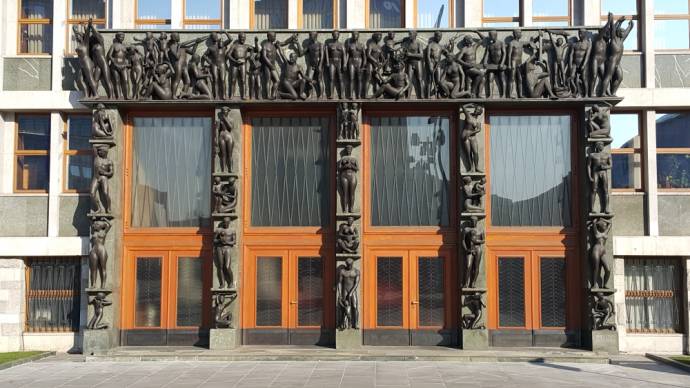STA, March 18 – The National Assembly will hold next week what will probably be its last plenary session after PM Miro Cerar resigned on Wednesday. The agenda of the session is packed with last-minute legislative proposals, while MPs will also discuss the state-owed NLB bank. MPs will take note of Cerar's resignation on Tuesday.
As usually, the plenary will start on Monday with questions time featuring the outgoing prime minister.
MPs are expected to be officially acquainted with his resignation on Tuesday morning after the agenda for the day is expanded with this item on Monday.
The session, which will be held every day next week and on Tuesday, 27 March, will discuss more than 20 legislative proposals, of which several government-sponsored bills will be fast tracked, including a package of changes to agriculture laws on the agenda on Thursday.
On Tuesday, MPs will conduct the second reading of the government-sponsored bill on NGOs, which is in regular procedure. The bill defines NGOs and the criteria for obtaining the status of an NGO in the public interest.
Also on Tuesday, they will debate a bill dealing with housing and on Wednesday a bill on court expert witnesses, interpreters and appraisers.
The fate of several other bills, put forward by MPs, especially those at first reading is uncertain, because their second reading was expected at the next plenary in April, which however will probably not take place due to snap elections.
Such bills, sponsored by coalition MPs, are a bill to compensate Slovenian civilian victims of war for material damage suffered during WWII to be discussed on Tuesday, a culture euro bill aimed at improving the financial situation in arts and culture to secure EUR 122.6m in 2018-2024, on the agenda on Friday, and a bill on concession for exploitation of the Sava river, which will be discussed on Wednesday.
Among the opposition-sponsored bills to go through their first reading are changes to the act on international protection, which will be discussed on Tuesday, the act on the firefighting service, to be discussed on Friday, and the act on youth housing, which is on the agenda for Wednesday.
The parliamentary Public Finance Oversight Commission will resume on Monday its session on ways to protect the NLB bank against potential financial consequences of Croatian court rulings.
The opposition Democrats (SDS) and New Slovenia (NSi) have filed constitutional amendments under which Slovenia would seize the amount of assets seized by Croatia from banks Intesa Sanpaolo and Unicredit in Slovenia, whose Croatian arms have been authorised by the Croatian government to sue Slovenia over the deposits.
But the proposed changes require a positive appraisal from the European Central Bank (ECB), which could mean that the changes could not be passed before the National Assembly is dissolved.
The government is meanwhile working on its own solution. Finance Minister Mateja Vraničar Erman would not reveal any details but she did indicate that the opposition-sponsored motion and the government's solution were compatible.
She suggested that she does not care which motion gets passed as long as Slovenian taxpayers' money was protected.
Speaker Milan Brglez, who is also to attend the commission's session, has said that "there is a way" for the National Assembly to pass the changes before being dissolved.







